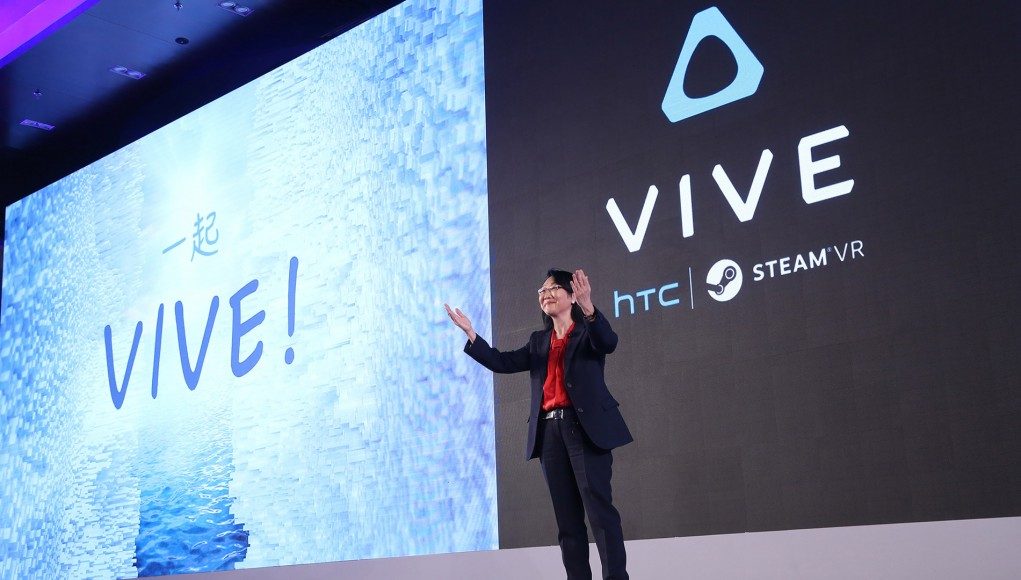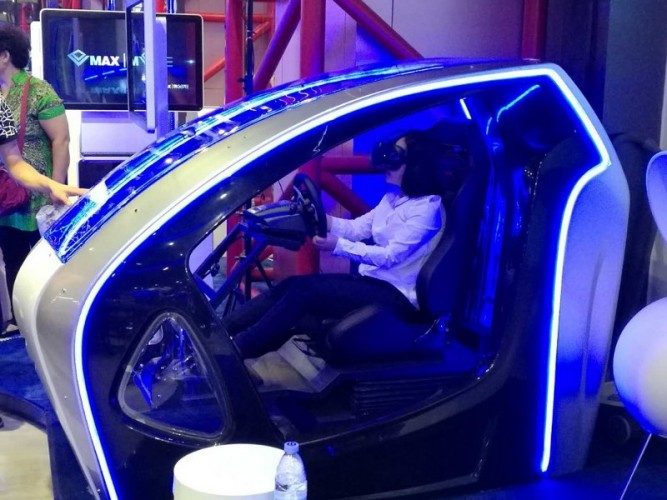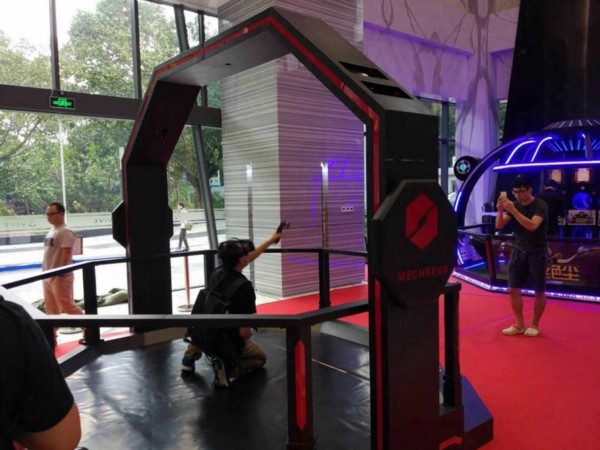HTC opened their third officially branded ‘Vive VR Cafe’ last week, this time in Shenzhen, China, the country’s Silicon Valley of hardware. In an interview with Haptical, HTC China’s President of Vive Alvin Wang Graylin confirms the company will be rolling out hundreds of these Shenzhen-style Vive cafes in 2016 and 2017 in China.
The kicker? Graylin maintains that once the Vive VR cafe model is fully tested in China, the company is planning to expand them internationally with a possibility of franchising opportunities.
This isn’t the only way HTC plans on getting their headsets and software into Chinese VR cafes however, even if the market is slowly opening up to a number of new headset manufacturers (and they’re cheaper too).
Last December, HTC announced a partnership with Shunwang, China’s leading software provider within the country’s many gaming cafes, but Graylin says the new Vive VR Cafe in Shenzhen is in fact the result of outside investment.
“Shunwang cafes are more [like] Internet cafes converting to VR” he says, “this one is more like an arcade and social space.”
HTC currently operates two other Vive VR cafe locations, one in Taipei and the other in Beijing, but Graylin tells Haptical that there are currently 3000+ non-branded VR arcades in China, and according to him, they’ll be using HTC’s user-friendly Viveport Arcade management platform “to connect them and bring value to users, store owners, and developers.” (currently China-only)
Growing Expectations
China’s potential VR market is on the verge of an exponential explosion, and with an expected growth up to $8.5 billion in the next four years—as reported by Bloomberg—it’s clear that everyone wants a piece. For now, it seems, even Western developers can get a toe hold into the Chinese VR market.
Road to VR Executive Editor Ben Lang spoke with Shunwang’s Sky Liu, the person leading the company’s VR strategy. Liu explained that Shunwang is offering wide-ranging support to help Western game studios bring their VR games to China, including a fund willing to support studios with investments ranging from $150,000 to $1.5 million—all in the effort to grow the potential library of games in their VR internet cafes. Check out our full article for more information on how to get started.










